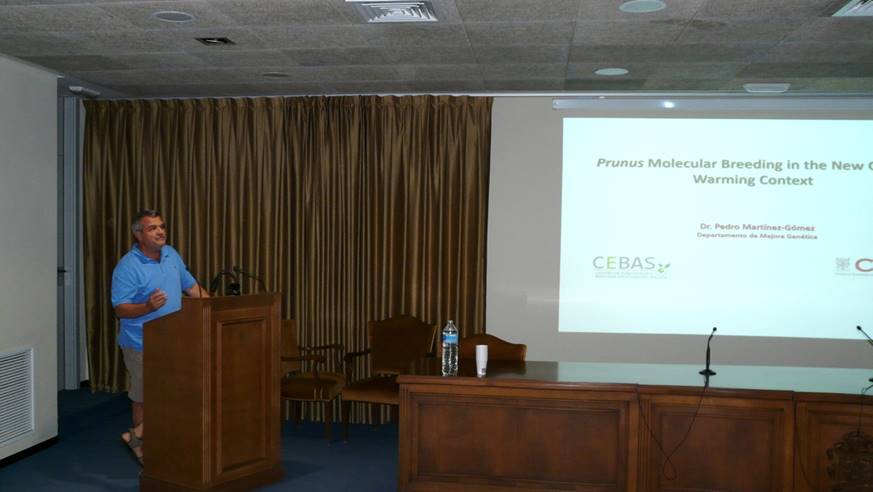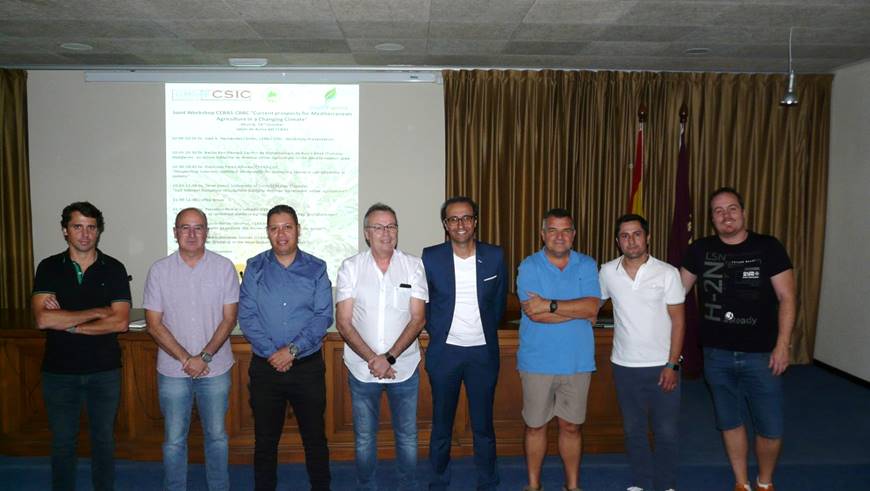Last October 18th, 2022, a joint CEBAS-CCBC (Borj Cedria Biotechnology Center, Tunisia) workshop was held at CEBAS-CSIC, on «Current Prospects for Mediterranean Agriculture in Changing Climate». This workshop was held within the framework of the HaloFarm project, funded by the PRIMA program (Partnership on Research and Innovation in the Mediterranean Area, European Union), and an ICOOP project, funded by the Spanish National Research Council (CSIC).
The workshop was organized by Doctors Jose Antonio Hernández Cortés, Pedro Díaz Vivancos and Gregorio Barba Espín.
The event was presented by Dr. José Antonio Hernández, talking about the double cooperation that CEBAS has with the CBBC, through the PRIMA and ICOOP projects. Likewise, he spoke briefly about the participation of CEBAS in both projects and showing the beneficial effect of the use of halophytic plants in mixed crops with tomato plants or in crop rotation in the soil haloremediation process as well as its beneficial effect on the response of tomato plants in terms of photosynthesis or production.
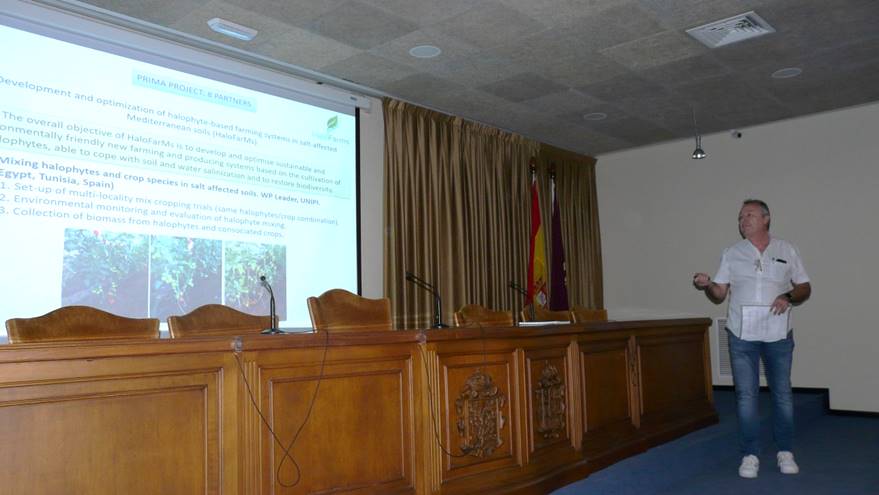
Dr. Karim Ben Hamed, from the Biotechnology Center of Borj Cedria, Tunisia, spoke about the HaloFarm project, funded by the PRIMA program (Development and Optimization of Halophyte-based Farming systems in salt-affected Mediterranean Soils). Dr. Ben Hamed is the coordinator of the HaloFarm project. Recent research shows that saline farming is one of the most practical approaches to remediating salt-affected soils. There is an increase in the number of cooperative initiatives focused on saline agriculture in the Mediterranean basin. The main objective of this project is to develop new farming systems based on the cultivation of halophytic plants, for soil desalination. Preliminary results of the project have shown that the cultivation of halophytic plants with tomato plants, either as intercropping or in crop rotation, plays an important role in improving the productivity of salt-affected soil. This mixed cropping system adds economic value to the yield of tomato plants. In addition, in this project, CEBAS researchers have achieved the establishment, micropropagation and acclimatization to ex vitro conditions of halophytic plants tolerant to high concentrations of NaCl in the medium for its use with commercial crops.
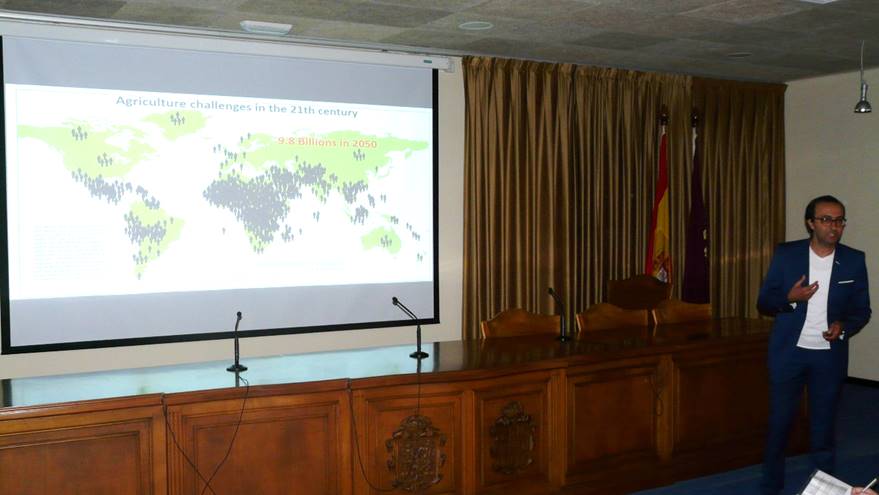
Dr. Francisco Pérez Alfocea, from the Plant Hormones Group (CEBAS), has told us about his work to contribute to the cultivation of tomato plants in a sustainable way to increase the efficiency in the use of water and nutrients of the crop and the reduction of the leakage of nutrients and the consequent contamination of aquifers. The development of rootstocks based on wild tomato species that preserve ancient ecological adaptations to poor and dry environments through specific ideotypes of the root system, is proposed as an effective tool to improve the efficiency in the use of water and nutrients in the cultivation of tomato under adverse climatic conditions and with a lower contribution of fertilizers, thus contributing to food security through a more ecological and sustainable agriculture in the Mediterranean area and beyond.
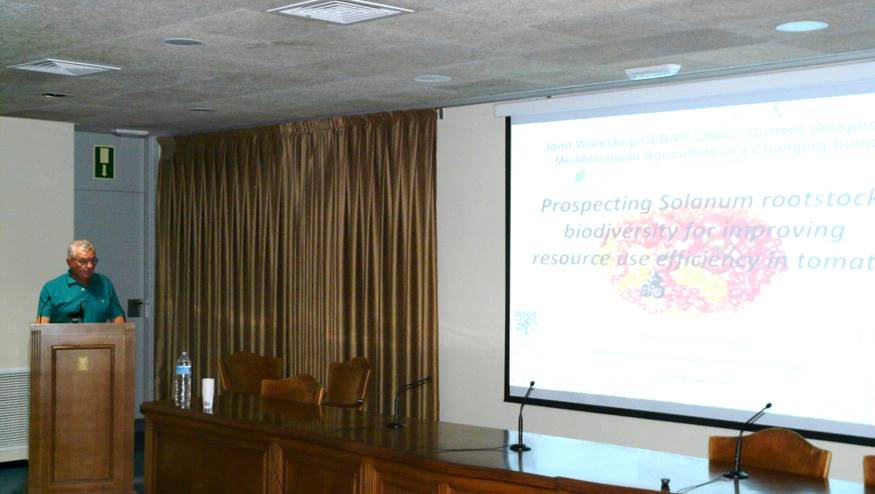
Dr. Tarek Slatni, a researcher at the University of Tunis El Manar (Tunisia) spoke to us about the development of biological and environmentally friendly tools to improve sustainable saline agriculture in order to support small farmers facing the challenges of climate change. Dr. Slatni’s group has isolated soil bacteria strains (rhizobacteria) tolerant to salinity (ST-PGPR) that improve the growth of quinoa and barley crops and their productivity under salinity conditions.
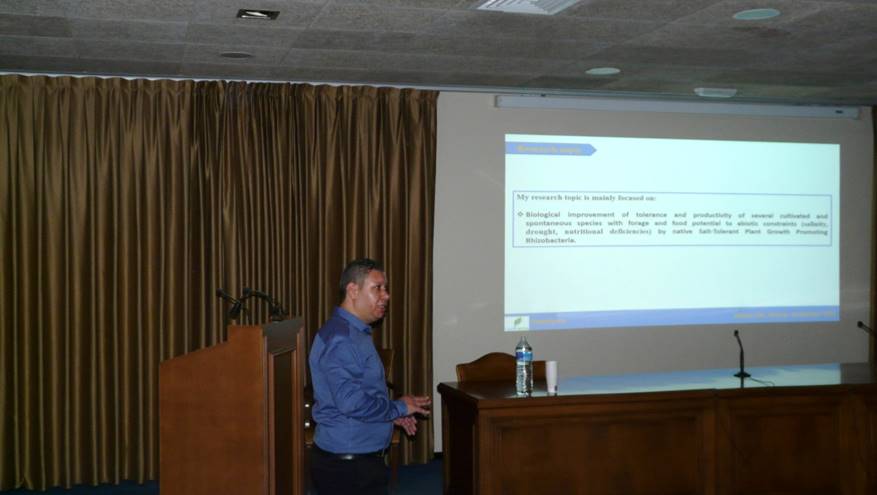
Dr. Francisco Pedrero Salcedo, from the Irrigation Group (CEBAS), has presented the main challenges faced by the use of reclaimed water in agriculture through numerous studies carried out in the Irrigation Department. These studies have been developed based on the 4 main barriers; risks of toxicity and food safety, economic aspects (energy-water), social acceptance and environmental pollution. The different research platforms that the Department has in terms of water reuse both in the open air (fruit trees) and under greenhouses (horticulture) conditions and the numerous works carried out at the district level in collaboration with different irrigation communities were presented. Finally, the integration, through the new research projects granted, precision agriculture technologies in this line through the use of Geographic Information System of agricultural plots, multispectral and thermal images, development of Decision support systems (DSSs) and soil and plant sensors was shown.
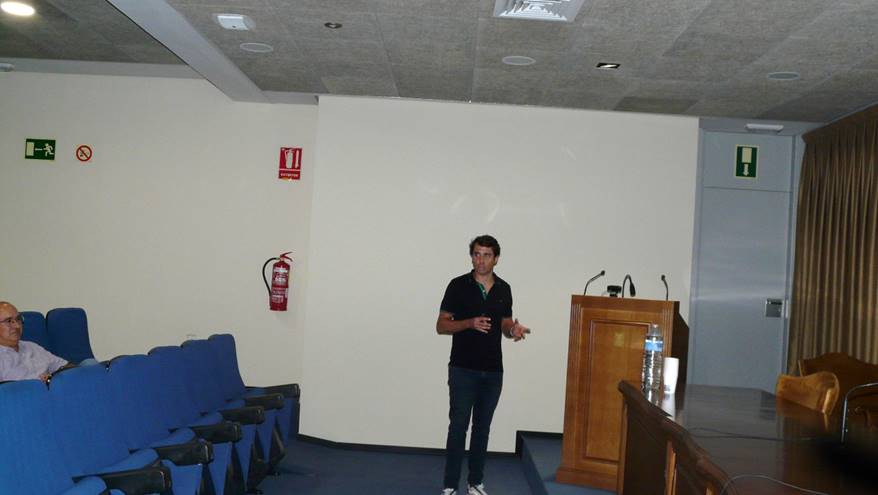
The speech of Dr. Francisco Garcia Sanchez, Plant Nutrition Department (CEBAS), was focus on the agronomic strategies that can be applied in citrus plants irrigated with water containing a high concentration of boron. Unconventional water sources have a high concentration of this nutrient, becoming toxic for citrus cultivation, so it is necessary to apply different agronomic techniques such as selection of tolerant rootstock, use of mycorrhizae or application of biostimulant products formulated with algae extracts, selenium, amino acids or organic acids to reduce both the concentration and reactivity of boron in plants.
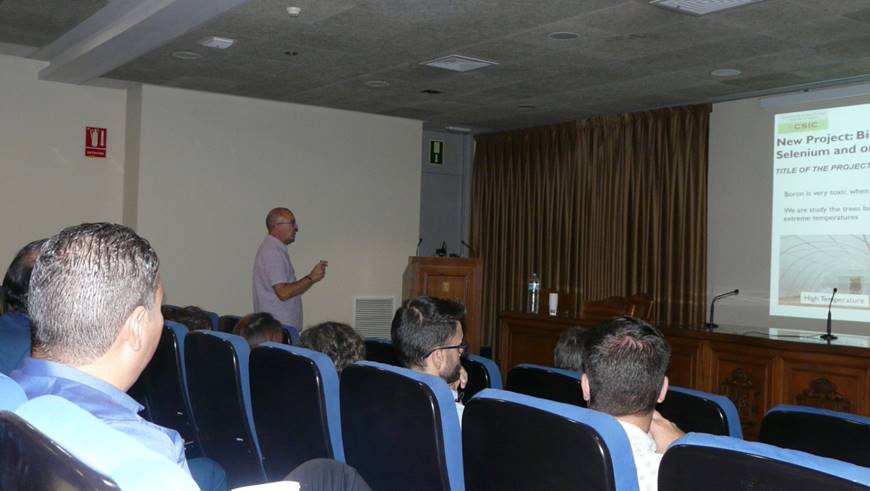
The presentation by Dr. Pedro Martínez Gómez (Plant Breeding Department, CEBAS) has dealt with «The Molecular Genetic Improvement of Fruit Species of the Genus Prunus in the New Context of Global Warming». The researcher has presented the latest advances of his Research Group in the application of DNA, RNA and epigenetic molecular markers in the development and exploitation of the new varieties and patterns obtained in his group. The flowering season in fruit trees is a character of vital importance for the adaptation of varieties to climate change and the reduction of cold requirements in regions such as Murcia. The development of RNA markers to monitor processes such as dormancy breaking and flowering using BloomTech® technology is a very important line of research exposed by Dr. Martinez Gómez. On the other hand, the development of new almond rootstocks for dry farming of this species, such as DRYSTOCK® One, has been another of the aspects addressed in this speech.
